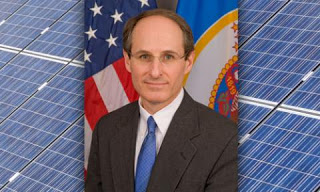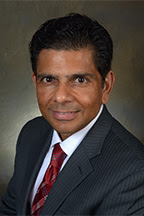Archive for the ‘Crony Capitalism’ Category
Saying that Mayor Kleis made a major mistake in selling city park land to Costco is understatement. The city councilmembers who voted to approve the sale should be terminated the next time they’re up for re-election. Ditto with Kleis. George Hontos’ op-ed explains things perfectly.
Hontos writes “First, the sale of 18.56 acres of city park land for Costco for $3.5 million was a give away that the mayor could have prevented. The city had an independent professional appraiser determine the land had a value of over $5 million. Back in Jan. 2018, before any purchase agreement was signed with Costco, a local developer offered the city $6.5 million, but the Mayor rejected this offer, saying it was too late in the process.”
Mayor Kleis isn’t the only person who should get criticized. Later, Hontos wrote “There was nothing stopping the Mayor from calling for a bidding process. Just as disappointing were the actions of my cohorts on the city council, there was nothing stopping them from voting the Costco offer down and calling for a bidding process. But they did not do so. Why? What happened to the mayor and city council’s fiduciary responsibilities to the taxpayers? Now they have given a deep discount on some of the most valuable commercial property left in our city.”
Mayor Kleis has touted himself as fiscally conservative. This transaction proves that he isn’t. This transaction proves that he isn’t that good of a negotiator. Then there’s this:
Second, a highly taxpayer-subsidized “affordable” housing project was approved and again I voted against this. Not that I am against affordable housing, but because of the way this project was billed as helping the affordable housing needs of our community. The developer and city staff billed this project to be one of the nicest apartment buildings in the area. The rents are so out of sync with market rate units. This project has a one bedroom apartment starting at $950 per month. After going on apartments.com I canvassed 30 local apartment buildings with one bedrooms. The average rent as advertised was $699.33 and not one was listed at $950. The majority of the city council, along with the support of city staff, has allowed a private developer to extract significant public assistance from taxpayers all in the name of affordable housing.
Providing affordable housing isn’t a core function of city, county or state government. Period. The government should keep its nose out of this stuff.
PS- The people that voted for the Costco transaction and the affordable housing need to be run off the City Council ASAP.
This LTE explains in very personal terms why tax simplification is required. A few paragraphs into the LTE, it says “But the tax reform proposal introduced by the U.S. House could undo much of that success. It breaks a bipartisan deal agreed to at the end of 2015 to phase down the wind energy Production Tax Credit by 2020. House lawmakers are looking to re-write the rules in the middle of the game, and that puts our economy and U.S. workers at risk.”
There’s no disputing that the new tax legislation will put some businesses at risk. Entrepreneurship requires taking risks. Why should a renewable energy business not face risk but farmers live with the prospect of getting wiped out every minute of their lives?
It’s time that the federal government got out of the corporate welfare business. If a product is a quality product and it’s essential to enough people, it will succeed. If it isn’t that essential, people might ignore it, in which case the company will soon be bankrupt. That’s capitalism and it’s the best economic model in the history of mankind. Here’s what Milton Friedman thinks of capitalism:
Congress developed the PTC to help wind developers gain access to the private investment capital they need to build wind farms. That in turn keeps U.S. factory workers busy making new wind turbines, and it keeps construction businesses like ours stay busy installing them. Our workers depend on these orders, and the PTC has helped keep our construction queue full.
What this company is apparently lobbying for is lower corporate tax rates and corporate welfare, too. Taxpayers shouldn’t shoulder the burden on whether a company succeeds or fails.
This is crony capitalism at its worst. For the foreseeable future, companies will introduce studies that highlight the benefits of corporate welfare:
That’s why American wind power added jobs nine times faster than overall economy last year, and keeping the investment policies stable will create an additional $85 billion in economic activity through 2020, according to Navigant Consulting. It will also grow an additional 50,000 American jobs, including more 8,000 jobs at U.S. factories, by the end of President Trump’s first term.
With all due respect, we don’t know that. I’m certainly not willing to trust a self-serving report. Companies that commission these types of reports frequently can’t survive without corporate welfare.
It’s time to cut this cord.
When the Minnesota Department of Commerce testified that Enbridge hadn’t shown a need for replacing their Line 3 Pipeline, people scratched their heads. That project is a $7,500,000,000 infrastructure project. It’s difficult to picture a pro-commerce Commerce Department rejecting that type of project. There’s an old saying that I learned during the Watergate investigation. It’s called ‘follow the money’.
According to Mike Rothman’s official bio, “Rothman’s top priorities include consumer protection, a clean energy future, and strong financial and energy sectors for Minnesota’s economy.” In an interview with the Clean Energy Resource Team, Rothman made clear that he wasn’t a disinterested bystander in terms of the government financing clean energy projects. CERT started the interview by asking Rothman “Have the tax credits been important for getting Minnesota to where we are today with wind and solar?” Commissioner Rothman replied “From the vantage point of the Commerce Department, we believe these tax credits have really been central pillars supporting wind and solar development in our state. The ITC enabled solar manufacturers to produce at scale and dramatically cut the costs of modules and other components. It also encouraged a growing base of Minnesota solar installation companies to invest in training and certification while expanding their businesses and creating new jobs.”
In other words, without crony capitalism, wind and solar wouldn’t offer competitive prices. The question I’d ask Commissioner Rothman is whether his prioritizing clean energy had anything to do with his department’s heavy-handed testimony against Enbridge. It isn’t a stretch to think that a person that supports tax credits for wind and solar certainly might support eliminating fossil fuels, too.
This is part of the Commerce Department’s website:
Solar Industry Resources
The state of Minnesota is interested in helping Minnesota-based solar businesses expand and attracting new solar businesses to the state.
From solar manufacturers and system developers and installers to the agencies that help finance solar projects, the Minnesota Department of Commerce is here to help build a strong clean energy economy. The solar industry is booming in Minnesota, and it is positioned for continued growth. With solar policies such as the solar electricity standard and programs like the $15 million a year Made in Minnesota Solar incentive Program, Minnesota is committed to the solar industry.
Based on the Commerce Department’s pro-clean energy statements and their hostility towards fossil fuels, I think it’s entirely reasonable to think that Gov. Dayton’s Commerce Department isn’t a neutral arbiter in this fight.
In Part I of this series, I quoted Kate O’Connell, manager of the Energy Regulation and Planning Unit of the Department of Commerce, as saying “In light of the serious risks and effects on the natural and socioeconomic environments of the existing Line 3 and the limited benefit that the existing Line 3 provides to Minnesota refineries, it is reasonable to conclude that Minnesota would be better off if Enbridge proposed to cease operations of the existing Line 3, without any new pipeline being built,’ the agency wrote in testimony submitted to the Public Utilities Commission on Monday, Sept. 11.”
It isn’t a stretch to think that environmental activists had a special place in Gov. Dayton’s Commerce Department. The Department’s testimony to the PUC was tilted. The Commerce Department’s personnel indicate a strong pro-clean energy preference. Thanks to the Commerce Department’s anti-pipeline bias, Minnesota is missing out on a major infrastructure project.
Shouldn’t we insist that these types of infrastructure projects get a higher priority? This project would’ve created thousands of jobs. The negative economic impact this rejection will have is disgusting. Stop back Tuesday for more on that aspect of the pipeline.
Technorati: Mark Dayton, Mike Rothman, Kate O’Connell, Commerce Department, Solar Panels, Wind Power, Crony Capitalism, Tax Credits, Minnesota Solar Incentive Program, DFL, Enbridge Line 3 Pipeline, Infrastructure, Construction Unions, Republicans
When I read this story, I was stunned. According to the story, the “Minnesota Department of Agriculture (MDA) awarded Minnesota Halal Meat & Grocery, 205 East St. Germain Street, $15,308.72 through the Good Food Access Program (GFAP). The store’s owner, Badal Aden Ali, says the store plans to install a dairy cooler, walk-in freezer, produce display case, and shelving. Ali says the grant funds will help address the needs of many of St. Cloud’s refugees and immigrants.”
Later in the article, we’re told that a “total of $150,000 in grant funds has been awarded to projects to purchase equipment and make physical improvements, increasing access to affordable, nutritious, and culturally appropriate foods in underserved and low- and moderate-income communities.”
What I’d like to know is how many similar programs exist within the Human Services and Minnesota Department of Agriculture budgets? How much taxpayer money gets spent each biennium to buy votes? This “store” is less than a mile away from my house. It’s a little hell-hole. It’s been that way since I was in grade school. (I started high school in 1970.)
Before anyone accuses me of being biased against refugees, my position is that I’m opposed to each of these grants.
I’m told that the theory behind these grants exist because the businesses can’t afford the loan to buy the equipment they’ll purchase with this grant money. If these businesses are on that shaky of ground, they should be allowed to fail.
Technorati: Crony Capitalism, Corporate Welfare, Minnesota Department of Agriculture, Minnesota Halal Meats
After writing this post about a proposal to increase affordable housing in the Greater St. Cloud area, I got a call from a loyal reader of LFR. This person highlighted the fact that St. Cloud’s economy used to be built around manufacturers like Franklin and big corporations like Fingerhut. This reader then mentioned the fact that St. Cloud’s economy today is focused on the hospitality and retail industries.
In the past, St. Cloud has made terrible choices for its economy. The Chamber of Commerce shouldn’t get off lightly, either, since they’ve frequently advocated for tourism industry bonding projects. In the end, those things changed St. Cloud from being a blue collar manufacturing town into a tourism mecca. That’s foolish because there are thousands of different tourism meccas in Minnesota.
In Jenny Berg’s article, she wrote that “Hontos said he wants a joint resolution to show interest from other cities.” He might get that resolution passed by the St. Cloud City Council but it’ll die the minute it gets to the Sartell and Sauk Rapids city councils.
Since this affordable housing project started getting publicity, talk has started about voting on a moratorium that would postpone the building of bike trails and city parks until St. Cloud attracts 5 new manufacturing companies to St. Cloud.
The liberal policies that’ve caused St. Cloud’s neighborhoods to deteriorate have led to rising crime rates, too. Mind you, many of these crimes haven’t gotten recorded but they’ve still happened. They’ve been reported. They just haven’t been recorded. We’re left with a city whose economy is like icing on a cake but without a main meal. Economies built around retailers and restaurants are like meals consisting of cake and ice cream but no meat, potatoes or gravy.
Other citizens have told me that getting things approved for construction has gotten more difficult. The City has the right official policies. They just aren’t enforced. The reason I mention this is simple. Why would a major company move to St. Cloud when crime is rising, there’s a shortage of the type of laborers that companies will need and the local economy is built around the hospitality and retail industries?
Dave Kleis has been one of the biggest cheerleaders for these policies. He’s also the chief cheerleader for the airport. He could’ve killed 2 birds with 1 stone by proposing an industrial park built right by a new regional airport. That would have a chance of gaining traction and changing the trajectory of St. Cloud’s economy. That proposal hasn’t been rejected. It’s been ignored instead.
Frankly, it’s time for new leadership in St. Cloud. St. Cloud needs someone who a) isn’t a de facto cheerleader for the Chamber of Commerce, b) doesn’t believe in crony capitalism and c) has a vision to restore St. Cloud’s identity as a blue collar All American city. I’d clean out most of the members of the City Council. I’d pretty much fire the School Board. Finally, I’d fire the SCSU president, too. It’s clear he doesn’t have a plan to turn SCSU around.
Mayor Kleis talks about reviving St. Cloud’s core neighborhoods. Those don’t get built or maintained by restaurant owners.
Technorati: Affordable Housing, St. Cloud Chamber of Commerce, Dave Kleis, St. Cloud Regional Airport, Franklin Manufacturing, Fingerhut, SCSU, Tourism, All American City
Each time there’s a big project in St. Cloud, the usual suspects tell us that they support the project, then encourage the citizenry to follow suit. That type of thinking has led to one disastrous decision after another. Most recently, the usual suspects (St. Cloud Chamber of Commerce, the Greater St. Cloud Development Corporation, aka GSDC, Mayor Kleis all DFL legislative candidates and the ISD 742 School Board) insisted that building a new Tech HS wasn’t just the best option. They insisted it was the only viable option for the citizenry. The truth is that the Board’s option was the worst option. Even though it was the most expensive option for taxpayers, that didn’t matter to the usual suspects.
The usual suspects often act like spoiled brats. They want what they want when they want it. Anyone getting in their way gets steamrolled. As for Tech, the best option might’ve been refurbishing and expanding Apollo. Enrollment in ISD 742’s grade schools is shrinking. Enrollment in Tech and Apollo combined was approximately 2,500 students in the last statistics we had. The point is we didn’t need a Taj Mahal-class building for Tech. Simply put, spending $105,000,000 on a school that’d hold 1,800 students is a major waste of money.
Further, it’s insulting to think that we need to spend $19,000,000 on refurbishing Eastman Hall on the SCSU campus. The state already spent lots of money on the ISELF Building, remodeling the Brooks Hockey Center and building the Coborn’s Plaza apartments. Each time these major projects were proposed, the usual suspects voiced their support for these projects.
Another high priority with the usual suspects supposedly is air service from St. Cloud to Chicago. The usual suspects support the latest study that they hope will cause the county commissioners to sign onto a regional airport authority. One of the Stearns County commissioners is quoted as saying this is the first he’s heard of the latest study. Nonetheless, the usual suspects unconditionally support the latest efforts even though they don’t have a plan going forward.
Rarely do these players listen to the people. Instead, they spend their time telling people how great their latest big project is. The truth is that St. Cloud isn’t the growing city it once was. That’s because the usual suspects haven’t set the right priorities. They’ve endorsed crony capitalist projects that are in their self interests, not the public’s interests.
Building an apartment complex for the Wedum Foundation hasn’t benefitted SCSU. Building an expensive high school won’t shrink the achievement gap. Conducting another study of the airport won’t bring back daily regional air service. Meanwhile, the citizens’ property taxes continue to rise while more cost-effective options are ignored.
Thank the usual suspects the next time you pay your property taxes.
Technorati: Tech High School, St. Cloud School Board, St. Cloud Chamber of Commerce, St. Cloud State University, Usual Suspects, Wedum Foundation, Crony Capitalism, Property Taxes, St. Cloud Regional Airport
Donald Trump wasted a valuable commodity this week — time. The week started right, with him winning the first third of the debate. Then he forgot his purpose and started chasing ghosts. The lesson that his advisors need to teach him is that he needs to focus on things that will help him connect with blue collar workers. The other thing that Mr. Trump must highlight is the Clinton Foundation’s pay-to-play scandal and the FBI’s faux investigation.
By highlighting the FBI’s faux investigation, Mr. Trump would connect with Bernie Sanders’ voters that think that the system is rigged. The FBI’s faux investigation would play well with suburban voters who think Mrs. Clinton isn’t trustworthy. It’d be great if he could flip those voters. At this point, Mr. Trump’s campaign would probably be satisfied if it drove Mrs. Clinton’s turnout with suburban voters down.
The Clintons are disgusting, immoral people who’ve lived in the mud their entire lives. Spending 5 more weeks there to win the presidency means nothing to them. Trump’s path to victory is to highlight the things that matter most to people. When in Ohio and Pennsylvania, Mr. Trump should highlight Mrs. Clinton’s statement that she’s going to put coal companies out of business. Wherever he goes, he needs to highlight his plan for energy independence, then contrast that with Mrs. Clinton’s green energy policies.
Part of Mr. Trump’s presentation on green energy should highlight the rigged game that Solyndra tapped into. Mostly, though, Trump should highlight the fact that coal-mining and fracking jobs are just waiting to be filled. Ask people if they want to subsidize Mrs. Clinton’s and President Obama’s special interest allies or whether they’d like to keep doing what’s worked for the last half-century.
If Trump gets back on message, he’ll put pressure on Mrs. Clinton because people want change. They don’t want Mrs. Clinton’s more-of-the-same policies.
Technorati: Donald Trump, Change Election, Energy Independence, Blue Collar Voters, Fracking, Republicans, Hillary Clinton, FBI Investigation, Clinton Foundation, Pay-to-Play Scandal, Solyndra, Crony Capitalism, Barack Obama, Democrats, Election 2016
In 2008, Hillary was considered the presumptive Democrat nominee. Pundits said that she’d win the nomination, then win the general election. They were wrong both with both predictions. This Quinnipiac Swing State Poll must be close to Hillary’s nightmare scenario.
What do you think she’s thinking when she sees that Trump is tied with Mrs. Clinton in Ohio and that he leads Mrs. Clinton in Pennsylvania and Florida? Imagine Mrs. Clinton reading “The presidential matchups show: Florida - Trump at 42 percent to Clinton’s 39, compared to a 47-39 percent Clinton lead June 21; Ohio - Clinton and Trump tied 41-41 percent, compared to a 40-40 percent tie June 21; Pennsylvania - Trump at 43 percent to Clinton’s 41 percent, compared to June 21, when Clinton had 42 percent to Trump’s 41 percent.”
If Mrs. Clinton lost those 3 states, she’d lose to Trump. It’s that simple. I can’t picture Mrs. Clinton losing Pennsylvania but winning North Carolina. That just doesn’t seem possible. These statistics are part of this RedState post with a headline glaring “Hillary Loses Ground After Outspending Trump $57M to $4M.”
This is just part of the pattern for Hillary. She’s outspending Trump by orders of magnitude but she’s losing ground to him while outspending Trump.
What’s more troubling for Hillary is that she won’t get Bernie Sanders’ voters in the percentages that she’d hoped for:
Some of Bernie Sanders’ most loyal backers have turned into his biggest bashers on the heels of his Hillary Clinton endorsement.
The Vermont senator, who slammed Clinton repeatedly during the presidential primary campaign, offered his unwavering support to the presumptive Democratic nominee at a rally in New Hampshire Tuesday. “Hillary Clinton will make a great president and I am proud to stand with her today,” he said.
What followed was an avalanche of angry tweets, blogs and other social media posts from those who had been feeling the ‘Bern’ — and now just feel burned. In New York, Monroe County Sanders activist Kevin Sweeney told the Democrat & Chronicle he’s shifting his donations to Green Party candidate Jill Stein. “A lot of Bernie supporters are making $27 donations to Jill Stein’s campaign today,” he said.
This won’t blow over anytime soon. Some of Bernie’s supporters are true believers. A woman named Ashley Marie tweeted “Used to be a Bernie fan but now that he’s joined Hillary, who supports everything he’s supposedly against, I’m a Trump fan. #NeverHillary” Dan LaMorte tweeted “Bernie Sanders endorsing Hillary Clinton feels so much like when the girl you love starts dating the guy you hate most.”
Perhaps, the best tweet came from Craig, who said “Revolution? I guess political revolution meant something different to Bernie. I was willing to fight corruption to the death. #NeverHillary”
Apparently, Bernie’s supporters were true believers. Apparently, true believers don’t fit with Hillary’s people.
This doesn’t mean Hillary will lose this November. It just means Hillary’s team will need to order tons more Maalox.
This post is proof that progressives aren’t interested in having an honest conversation about policy. First, Sen. Stumpf saying that “we have a responsibility in the state of Minnesota to take care of property, the things that the public owns, to make our economy keep moving along” is intellectually dishonest.
It isn’t that Republicans don’t think that government shouldn’t maintain essential infrastructure. It’s that Republicans think that projects, like bridges, are multi-generational and shouldn’t be paid for with tax increases that are paid for by this generation. Republicans think bonding makes sense because multiple generations pay for a multi-generational piece of infrastructure.
Ms. Bierschbach wasn’t being honest when she said that “But that’s not how House Republicans see things. Many of them consider borrowing for infrastructure just more government spending, akin to credit card debt.” That’s false. The best way to illustrate the absurdity of that statement is by applying certain principles from home life. It’s one thing for a couple with a good credit rating and money in the bank to take out a mortgage to buy a home. It’s quite another to make frequent use of a high-interest credit card to pay for day-to-day things.
State bonding for things like museums, civic centers and hockey arenas isn’t wise. State bonding for things like highways and other critical infrastructure should be prioritized. It’s that simple.
Further, it doesn’t make sense to raise taxes to pay for building multi-generational pieces of infrastructure. Similarly, taking on long-term debt to pay for things like civic centers, museums, etc. is foolish, too.
Finally, it’s time to rethink the criteria we use for bonding projects.
Contrary to statements in this article, the Minnesota Chamber of Commerce isn’t the consistent friend of the GOP. David Montgomery wrote “the GOP’s traditional allies in the business community are joining DFLers in the push to include transit in a transportation funding package.” The Minnesota Chamber is, at best, an on-again, off-again ally to the GOP.
Let’s check out the Chamber’s history. In past years, they’ve pushed for lots of bonding projects like civic centers and downtown renovations. That’s proof that they aren’t limited government conservatives. That isn’t surprising.
In 2008, the Chamber provided the DFL with the political cover they needed to raise Minnesota’s gas tax. That transportation bill also included lots of fees that went towards increasing transit funding. Eight years later, the Chamber is pushing another round of middle class tax increases to pay for transit projects. Apparently, the other fee increases didn’t work. (At the time the 2008 tax increase plan passed, I predicted that they’d be back sooner rather than later for more tax and fee increases. I was right. Hint: it didn’t require Nostradamus to get that prediction right.)
House Speaker Kurt Daudt routinely expresses a similar sentiment: that the Legislature should focus on new road and bridge spending and not on buses and trains.
Speaker Daudt is right. Minnesotans can’t afford another DFL middle class tax increase. Taxpayers aren’t ATMs. It’s time to start prioritizing rather than putting together oversized wish lists that can only be funded with major tax and fee increases.
When Gov. Dayton pushed B2B tax increases, the Chamber fought him on it because it was their ox getting gored. Now that the tax increase is hitting someone else, they’re pushing for it. Apparently, the Chamber is ok with tax increases … as long it doesn’t hit them.






